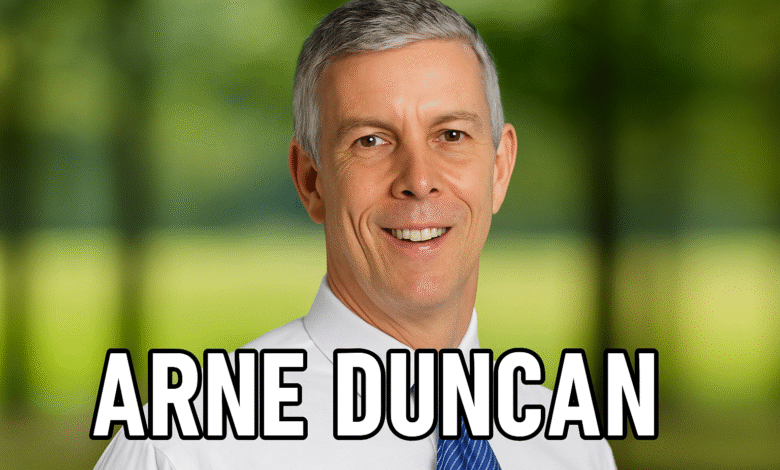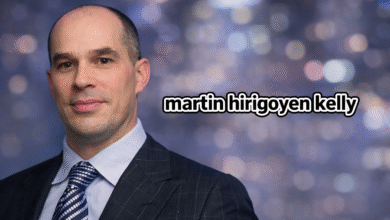Arne Duncan: Transforming Education Through Vision and Leadership

Education is the cornerstone of a nation’s progress, and few American education leaders have had as significant an impact as Arne Duncan. Known for his innovative reforms, practical leadership, and unwavering belief in equity, Arne Duncan has reshaped how policymakers, teachers, and communities think about education. From his early years in Chicago to his time as U.S. Secretary of Education under President Barack Obama, Arne Duncan has dedicated his life to improving educational outcomes for all students.
Early Life and Education of Arne Duncan
Arne Duncan was born on November 6, 1964, in Chicago, Illinois. Growing up in a family deeply rooted in education, he was profoundly influenced by his mother, Susan Duncan, who ran an after-school tutoring program in the South Side of Chicago for underprivileged youth. It was in these early years that Arne Duncan witnessed the transformative power of education in breaking cycles of poverty and inequality.
Duncan attended the University of Chicago Laboratory Schools and later graduated from Harvard University with a degree in sociology. During his time at Harvard, Arne Duncan also excelled in basketball and later played professionally in Australia. These experiences taught him discipline, teamwork, and leadership—skills that would later define his career in education policy.
Arne Duncan’s Work in Chicago Public Schools
Before rising to national prominence, Arne Duncan served as the Chief Executive Officer of the Chicago Public Schools (CPS) from 2001 to 2009. His tenure was marked by a commitment to accountability, innovation, and closing achievement gaps. Arne Duncan implemented initiatives that emphasized teacher quality, parental engagement, and early childhood education.
One of his most impactful programs was the expansion of charter schools and magnet programs, which gave families more educational choices. Arne Duncan also focused on turning around low-performing schools by providing additional resources and replacing ineffective leadership when necessary. His results-oriented approach won both praise and criticism but ultimately positioned him as a reform-minded leader unafraid of challenging the status quo.
Arne Duncan as U.S. Secretary of Education
In 2009, President Barack Obama appointed Arne Duncan as the U.S. Secretary of Education. During his seven-year tenure (2009–2016), Arne Duncan spearheaded several groundbreaking policies that reshaped the American education system. His vision centered on improving standards, teacher effectiveness, and student outcomes through innovation and accountability.
Key Initiatives Introduced by Arne Duncan
-
Race to the Top – Perhaps the most well-known of his reforms, this competitive grant program encouraged states to adopt higher academic standards, promote charter schools, and improve teacher evaluations. It incentivized educational innovation nationwide.
-
Common Core State Standards – Under Arne Duncan’s leadership, the Department of Education supported the implementation of the Common Core standards to ensure students across states received a consistent and rigorous education.
-
No Child Left Behind Waivers – Recognizing the flaws in the No Child Left Behind Act, Arne Duncan provided waivers that allowed states flexibility in meeting federal requirements while still maintaining accountability for student performance.
-
Focus on College Readiness – Arne Duncan emphasized the importance of preparing students not just for high school graduation but for college and careers, expanding access to higher education through initiatives like Pell Grant increases and community college programs.
Arne Duncan’s Leadership Philosophy
What sets Arne Duncan apart as a leader is his belief that education reform must be grounded in equity and opportunity. He has consistently argued that access to quality education should not depend on a child’s ZIP code. Arne Duncan promotes collaboration between educators, communities, and policymakers, emphasizing that systemic change requires collective effort rather than top-down mandates.
He is also known for valuing data-driven decision-making. Arne Duncan has long maintained that transparency and performance metrics are essential for identifying areas that need improvement. However, he also acknowledges the importance of empathy and human connection in the learning process.
Life After the Obama Administration
After leaving the Department of Education in 2016, Arne Duncan continued his work in public service. He joined the Emerson Collective, an organization founded by Laurene Powell Jobs, where he leads initiatives aimed at reducing urban violence and improving life outcomes for at-risk youth in Chicago. His program, Chicago CRED (Create Real Economic Destiny), focuses on job training, mentorship, and community engagement to break cycles of violence.
Through this work, Arne Duncan has extended his commitment to social justice beyond education, demonstrating that creating opportunities for young people requires addressing the broader social and economic factors that shape their lives.
Criticism and Legacy of Arne Duncan
Like many reformers, Arne Duncan has faced criticism from various stakeholders. Some educators argue that his focus on standardized testing and accountability put excessive pressure on schools and teachers. Others believe that his support for charter schools diverted resources from traditional public schools.
However, even his critics acknowledge that Arne Duncan elevated education reform to a national conversation. His tenure was marked by an unprecedented willingness to challenge outdated systems and prioritize student achievement. Today, Arne Duncan’s legacy continues to influence policymakers and education leaders who seek to balance innovation with inclusivity.
Awards and Recognition
Throughout his career, Arne Duncan has received numerous awards recognizing his leadership and service in education. He has been honored by educational organizations, universities, and civic groups for his tireless work in advancing equity and improving public education.
The Ongoing Influence of Arne Duncan
Even years after leaving federal office, Arne Duncan remains a respected voice in the education and public policy arenas. He frequently speaks at conferences, contributes to think tanks, and advises on education and community development initiatives. His advocacy continues to inspire educators who believe that every child deserves the opportunity to reach their full potential.
Arne Duncan’s career serves as a powerful reminder that meaningful change in education is possible when leaders combine compassion with courage, data with vision, and policy with purpose.
Frequently Asked Questions (FAQs)
1. Who is Arne Duncan?
Arne Duncan is an American education reformer and former U.S. Secretary of Education under President Barack Obama from 2009 to 2016. He previously served as CEO of Chicago Public Schools.
2. What was Arne Duncan known for?
Arne Duncan is best known for his leadership in implementing the “Race to the Top” initiative, supporting the Common Core State Standards, and reforming federal education policies to improve accountability and student outcomes.
3. Where is Arne Duncan now?
Currently, Arne Duncan works with the Emerson Collective, leading programs such as Chicago CRED to address gun violence and create job opportunities for young people in Chicago.
4. What is Arne Duncan’s philosophy on education?
Arne Duncan believes in equitable access to education, data-driven accountability, teacher quality, and community engagement as key components of effective education reform.
5. Why is Arne Duncan an influential figure?
Because of his innovative reforms and national leadership, Arne Duncan remains one of the most influential voices in shaping U.S. education policy in the 21st century.
exploreclarion



